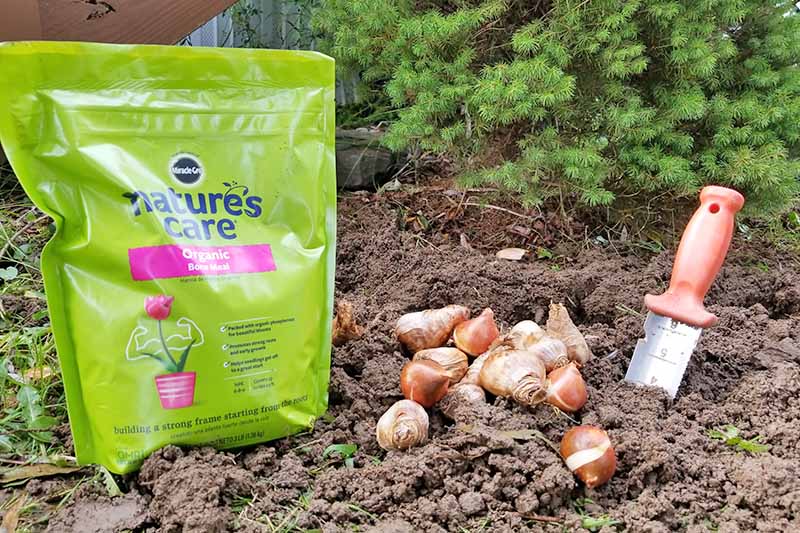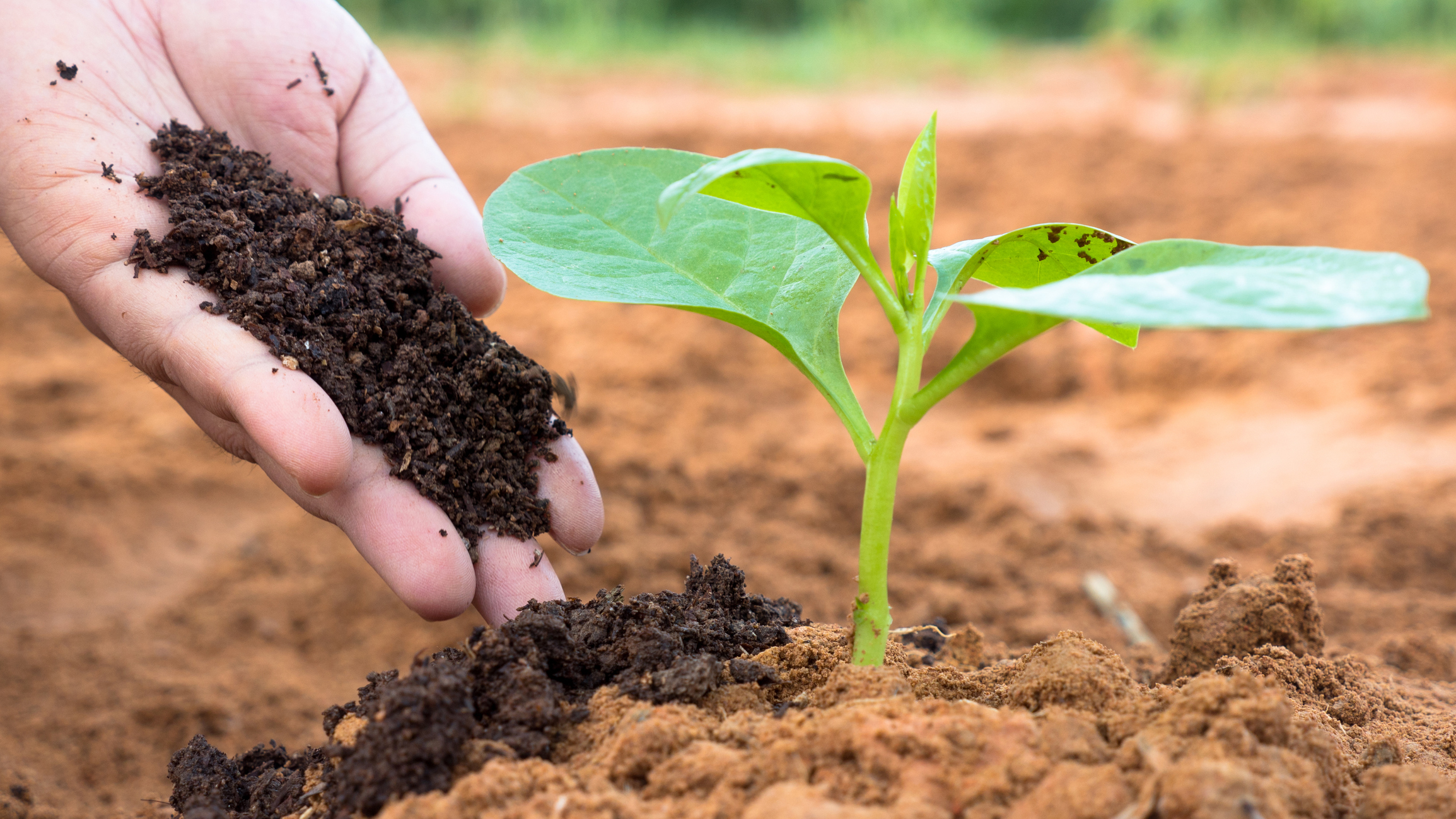Easy Ways To Fertilize Your Organic Garden
Title: Easy Ways to Fertilize Your Organic Garden
Introduction:
Fertilizing your garden is essential for healthy plant growth. But if you're looking for an organic way to do it, there are plenty of options available. In this blog post, we'll explore some of the easiest and most effective ways to fertilize your organic garden.
Main Content:
- Compost: Compost is one of the best organic fertilizers you can use. It's made from decomposing organic matter, such as food scraps, yard waste, and manure. Compost adds nutrients to the soil, improves drainage, and helps retain moisture. You can make your own compost at home, or you can buy it from a garden center.
- Vermicompost: Vermicompost is made from worm castings, which are the waste products of earthworms. Worm castings are high in nutrients and beneficial microbes. They're also a slow-release fertilizer, which means they won't burn your plants. You can buy vermicompost from a garden center, or you can set up your own vermicomposting bin at home.
- Manure: Manure is another excellent organic fertilizer. It's high in nitrogen, phosphorus, and potassium, which are essential nutrients for plant growth. However, it's important to use manure that has been composted or aged, as fresh manure can burn your plants. You can find composted manure at most garden centers.
- Kelp meal: Kelp meal is a natural fertilizer that's high in potassium, nitrogen, and other trace minerals. It's also a good source of humic acid, which helps improve soil structure and drainage. Kelp meal can be used to fertilize all types of plants, including vegetables, fruits, flowers, and trees. You can find kelp meal at most garden centers.
- Fish emulsion: Fish emulsion is a liquid fertilizer that's made from the processed remains of fish. It's high in nitrogen and other nutrients, and it's also a good source of beneficial microbes. Fish emulsion is a good choice for fertilizing vegetables, flowers, and herbs. You can find fish emulsion at most garden centers.
- Blood meal: Blood meal is a high-nitrogen fertilizer that's made from the dried blood of animals. It's a good choice for fertilizing plants that need a lot of nitrogen, such as leafy greens and root vegetables. However, blood meal can be harmful to pets if ingested, so it's important to use it carefully. You can find blood meal at most garden centers.
- Bone meal: Bone meal is a high-phosphorus fertilizer that's made from the ground bones of animals. It's a good choice for fertilizing flowering plants and vegetables that produce fruits or seeds. Bone meal is also a good source of calcium, which is important for plant growth. You can find bone meal at most garden centers.
Conclusion:
These are just a few of the many easy and effective ways to fertilize your organic garden. By using organic fertilizers, you can help to improve the health of your soil and your plants, while also reducing your impact on the environment.
Are you looking for organic garden fertilizer? Visit Home Gardening for more information about the different types of organic fertilizers available, as well as tips on how to use them properly.
At Home Gardening, we offer a wide variety of organic fertilizers, including:
- Bone meal
- Rock phosphate
- Bat guano
- Blood meal
We also offer a variety of other organic gardening products, such as compost, worm castings, and pest control products.
Our team of experts is available to answer any questions you may have about organic gardening. So whether you're a beginner or a seasoned pro, we can help you grow a healthy, productive garden.
Visit Home Gardening today to learn more about organic garden fertilizer!
FAQ of organic garden fertilizer
- What are the benefits of using organic fertilizer?
Organic fertilizers are made from natural sources, such as compost, manure, and bone meal. They are slow-release fertilizers, which means they release nutrients into the soil over time. This helps to prevent nutrient runoff and pollution. Organic fertilizers also improve soil structure and drainage, which can help plants grow healthier and stronger.
- What are the different types of organic fertilizer?
There are many different types of organic fertilizer available, including:
* Compost: Compost is made from decomposing organic matter, such as food scraps, yard waste, and manure. It is a rich source of nutrients and helps to improve soil structure.
* Manure: Manure is animal waste that has been composted. It is a good source of nitrogen and other nutrients.
* Bone meal: Bone meal is made from ground-up animal bones. It is a good source of phosphorus and calcium.
* Blood meal: Blood meal is made from dried blood. It is a good source of nitrogen.
* Green manure: Green manure is a living plant that is tilled into the soil. It helps to improve soil structure and add nutrients.
- How do I choose the right organic fertilizer for my garden?
The best organic fertilizer for your garden will depend on the type of plants you are growing, the soil conditions in your garden, and your budget. If you are not sure which type of fertilizer to choose, it is always a good idea to consult with a local nursery or garden center.
- How often should I fertilize my garden with organic fertilizer?
The frequency of fertilizing your garden will depend on the type of plants you are growing, the soil conditions in your garden, and the weather. In general, you should fertilize your garden once a month during the growing season.
- How much organic fertilizer should I use?
The amount of organic fertilizer you should use will depend on the size of your garden, the type of plants you are growing, and the type of fertilizer you are using. It is always a good idea to follow the directions on the fertilizer label.
- How do I apply organic fertilizer?
There are many different ways to apply organic fertilizer. You can broadcast it over the soil, side-dress it around the plants, or work it into the soil. The best method for you will depend on the type of fertilizer you are using and the size of your garden.
- What are the risks of using organic fertilizer?
Organic fertilizers are generally safe to use, but there are a few risks to be aware of. Some organic fertilizers, such as manure, can contain harmful bacteria. It is important to follow the directions on the fertilizer label and to wear gloves when handling organic fertilizers.
Image of organic garden fertilizer
- Compost is a mixture of decomposed organic matter, such as food scraps, yard waste, and manure. It is a slow-release fertilizer that can improve soil structure and drainage.
- Chicken manure is a high-nitrogen fertilizer that is also a good source of phosphorus and potassium. It can be used fresh or composted.

- Cow manure is another high-nitrogen fertilizer that is also a good source of phosphorus and potassium. It is typically less expensive than chicken manure.

- Blood meal is a high-nitrogen fertilizer that is made from dried blood. It is a good choice for plants that need a boost of nitrogen, such as leafy greens and vegetables.

- Bone meal is a high-phosphorus fertilizer that is made from ground bones. It is a good choice for plants that need a boost of phosphorus, such as flowering plants and fruit trees.

- Fish emulsion is a high-nitrogen fertilizer that is made from fish. It is a good choice for plants that need a boost of nitrogen, such as leafy greens and vegetables.

- Kelp meal is a high-potassium fertilizer that is made from seaweed. It is a good choice for plants that need a boost of potassium, such as tomatoes and potatoes.

- Peat moss is a good source of organic matter and helps to improve soil drainage and water retention. It is not a fertilizer, but it can be used to add nutrients to the soil over time.
- Vermicompost is a type of compost that is made by earthworms. It is a nutrient-rich fertilizer that is also good for the soil.

Post a Comment for " Easy Ways To Fertilize Your Organic Garden"